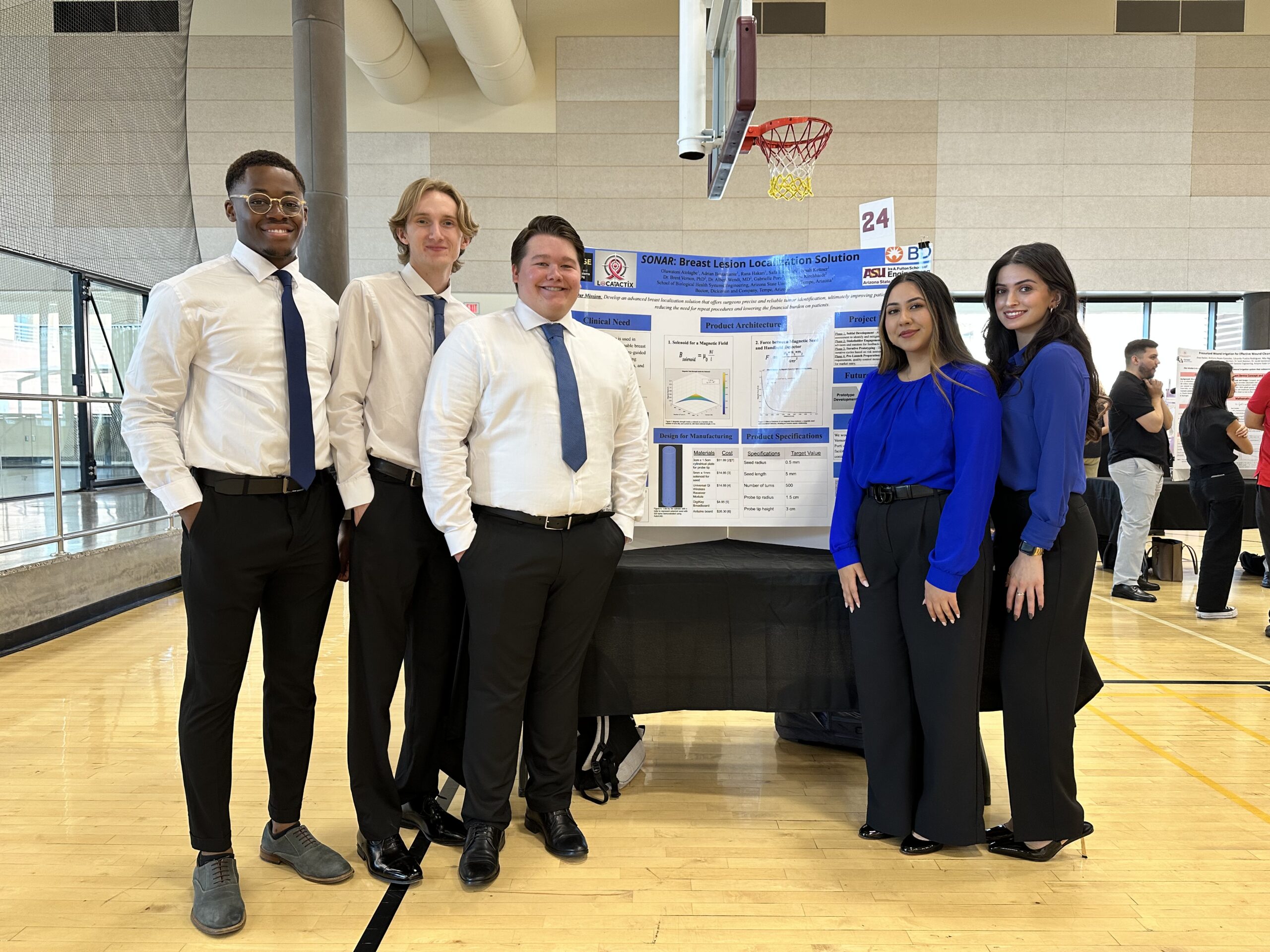
Breast Tumor Localization
Biomedical Engineering
Toni Atolagbe, Adrian Bustamante, Rana Hakari, Safa Hirmendi, and Noah Kettner
Abstract
Current breast lesion localization methods, such as wire and radioactive seed placements, present several challenges—including patient discomfort, logistical complexity, and procedural risks. These invasive techniques often require pre-operative scheduling constraints, multiple clinic visits, and increased anxiety for patients. To address these limitations, our team has developed SONAR, a non-invasive breast lesion localization solution designed to enhance clinical workflow while improving the patient experience. SONAR utilizes a handheld magnetic probe that generates a controlled magnetic field via a solenoid-based coil system. This field interacts with magnetic biopsy markers, such as Magseed, to enable real-time detection and accurate localization without the need for wires or radiation. The probe delivers audio-visual feedback to assist clinicians during procedures, minimizing localization errors and reducing surgical time. The device architecture includes a cylindrical probe tip that channels current-induced frequency for focused magnetic field generation. Designed for ease of use, SONAR requires minimal clinical training and seamlessly integrates into existing surgical workflows. Preliminary cost modeling estimates the price point of the handheld probe to be approximately $20,000, accounting for solenoid manufacturing, circuitry components, and clinical-grade housing materials. To reach the commercial market, SONAR will pursue FDA 510(k) Class II clearance. By offering a safer, clinician-friendly, and patient-centered alternative, SONAR has the potential to set a new standard in breast lesion localization. This innovation not only supports improved surgical accuracy but also reflects a broader commitment to advancing non-invasive technologies in women’s health.
Video
Research poster
Health
Sponsor
